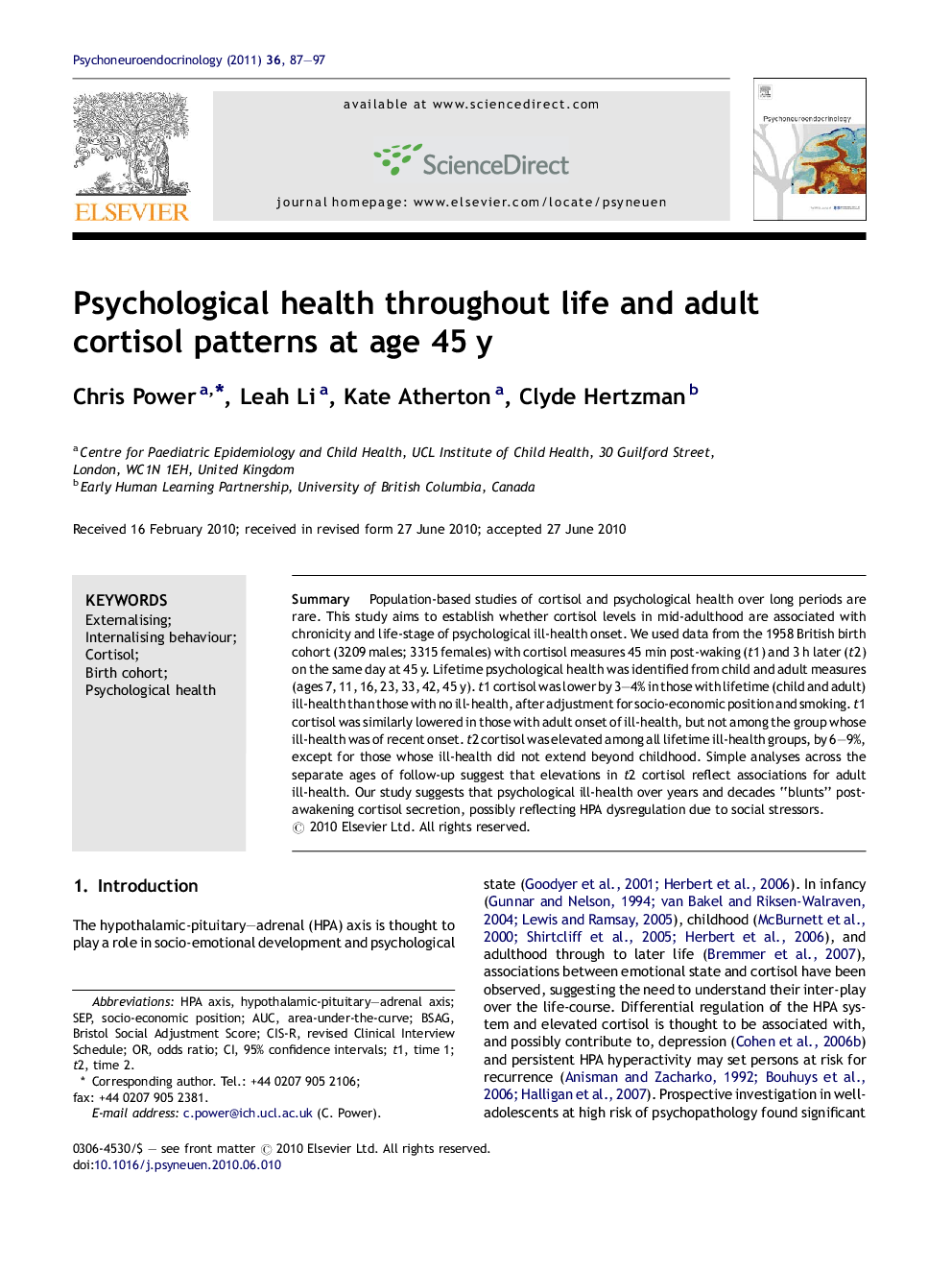| Article ID | Journal | Published Year | Pages | File Type |
|---|---|---|---|---|
| 335971 | Psychoneuroendocrinology | 2011 | 11 Pages |
SummaryPopulation-based studies of cortisol and psychological health over long periods are rare. This study aims to establish whether cortisol levels in mid-adulthood are associated with chronicity and life-stage of psychological ill-health onset. We used data from the 1958 British birth cohort (3209 males; 3315 females) with cortisol measures 45 min post-waking (t1) and 3 h later (t2) on the same day at 45 y. Lifetime psychological health was identified from child and adult measures (ages 7, 11, 16, 23, 33, 42, 45 y). t1 cortisol was lower by 3–4% in those with lifetime (child and adult) ill-health than those with no ill-health, after adjustment for socio-economic position and smoking. t1 cortisol was similarly lowered in those with adult onset of ill-health, but not among the group whose ill-health was of recent onset. t2 cortisol was elevated among all lifetime ill-health groups, by 6–9%, except for those whose ill-health did not extend beyond childhood. Simple analyses across the separate ages of follow-up suggest that elevations in t2 cortisol reflect associations for adult ill-health. Our study suggests that psychological ill-health over years and decades “blunts” post-awakening cortisol secretion, possibly reflecting HPA dysregulation due to social stressors.
